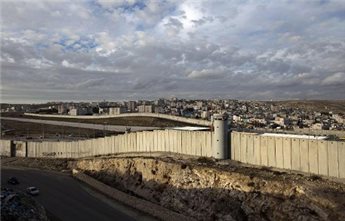Israel has reportedly accepted the allowance Palestinian vehicles to enter Jerusalem for the first time in 15 years, on Tuesday, the Israeli Coordinator of Government Activities in the Territories said.COGAT chief Yoav Mordechai said that the first phase of the plan will see more than 100 Palestinian doctors from the Bethlehem and Hebron districts permitted to enter Jerusalem, in private vehicles holding Palestinian license plates, and would be mostly aimed at those working in Israeli hospitals.
According to Ma’an, Mordechai said that the next phase will allow for businessmen to move freely.
The announcement comes a month after the Israeli authorities allowed Palestinian men over 55 and women over 50 to enter Jerusalem without permits.
That announcement also said that married men over the age of 22 would be eligible to apply for work permits, in contrast to current regulations that only allow married men over 24 who have children to apply.
As part of Israel’s nearly 50-year-old military occupation of the West Bank, Palestinians are subject to a complex system of movement permits and are prevented from moving freely between different areas of the West Bank as well as into Israel and the Gaza Strip.
A 2007 World Bank report said: ‘Currently, freedom of movement and access for Palestinians within the West Bank is the exception rather than the norm, contrary to the commitments undertaken in a number of Agreements between GOI (the Government of Israel) and the PA.
‘In particular, both the Oslo Accords and the Road Map were based on the principle that normal Palestinian economic and social life would be unimpeded by restrictions.’
The report added that Palestinians ‘are barred from freely accessing large segments of the West Bank. These restricted areas include all areas within the municipal boundaries of settlements, the “seam zone”, much of the Jordan Valley, East Jerusalem, restricted roads and other ‘closed’ areas,’ estimated in total ‘to be in excess of 50 percent of the total area of the West Bank.’
Israel provides permits to about 30,000 Palestinians from the West Bank allowing them to work inside Israel, but these permits are easily revocable and are subject to major restrictions on both movements and rights.
The numbers are also a far cry from the 1990s, when thousands more worked inside Israel.
Because Israel maintains almost complete control over the Palestinian economy, the decrease in numbers allowed to work inside Israel has led to widespread unemployment.

